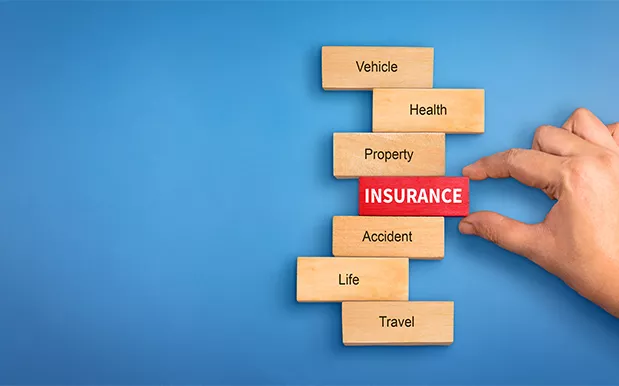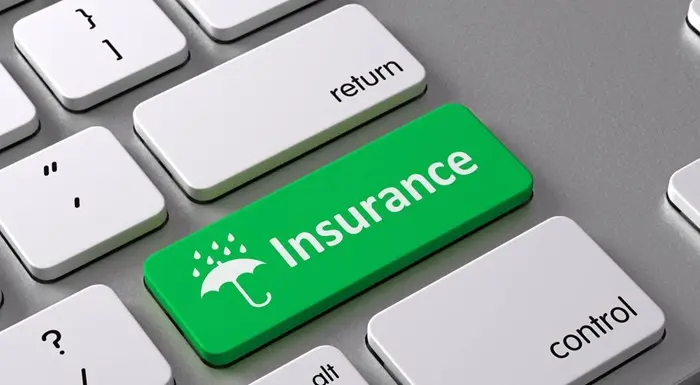In the vast landscape of financial products, liability insurance stands as a cornerstone for both individuals and businesses seeking to protect themselves against potential financial losses stemming from third-party claims due to bodily injury or property damage. This article aims to provide a comprehensive introduction to liability insurance, its types, cost, and the importance of having it. By breaking down the complexities of this insurance, we aim to offer clarity and understanding to our readers.
Understanding Liability Insurance
Liability insurance is a type of insurance contract designed to protect the insured against financial liability arising from third-party claims for bodily injury or property damage caused by the insured’s actions, errors, or omissions. This insurance is critical as it covers the costs of legal defense and settlement if the insured is sued for damages. Liability insurance policies can be purchased by individuals or businesses and cover various risks associated with different activities.
Types of Liability Insurance
Liability insurance can be categorized into several types, each tailored to meet the specific needs of different individuals and businesses.
1. Public Liability Insurance
Public liability insurance provides coverage for bodily injury or property damage to third parties caused by the insured’s business activities. This type of insurance is essential for businesses that interact with the public, such as retail stores, restaurants, and office buildings. It covers medical expenses, legal fees, and settlement costs if a third party is injured or their property is damaged due to the insured’s negligence.
2. Third-Party Liability Insurance
Third-party liability insurance is commonly associated with vehicle insurance. It covers the costs of bodily injury or property damage to third parties caused by the insured’s vehicle. This includes medical expenses, loss of income, and property repair costs. In many countries, third-party liability insurance is mandatory for vehicle owners, as it provides a safety net against financial ruin in the event of an accident.
3. Product Liability Insurance
Product liability insurance protects manufacturers, distributors, and retailers from claims arising from defective products that cause injury or damage to consumers. This insurance covers the costs of legal defense, product recall, and settlement if a consumer suffers bodily injury or property damage due to a product defect. Product liability insurance is crucial for businesses that sell or manufacture products, as it safeguards them against potential financial losses from product-related claims.
4. Employer’s Liability Insurance
Employer’s liability insurance provides coverage for claims made by employees who suffer bodily injury or illness due to their work. This insurance covers medical expenses, loss of income, and rehabilitation costs. In many countries, employer’s liability insurance is mandatory for businesses that employ staff, ensuring that employees are protected against workplace accidents and illnesses.
5. Professional Liability Insurance
Professional liability insurance, also known as errors and omissions insurance, protects professionals against claims arising from their services. This insurance covers legal fees and settlement costs if a client suffers financial loss due to the professional’s negligence, error, or misrepresentation. Professional liability insurance is essential for professionals such as doctors, lawyers, accountants, and architects, as it safeguards their reputation and finances against potential claims.
Importance of Liability Insurance
The importance of liability insurance cannot be overstated. It provides a crucial layer of protection for both individuals and businesses, safeguarding them against financial ruin in the event of a claim. Here are some key reasons why liability insurance is essential:
1. Financial Protection
Liability insurance provides financial protection against claims arising from bodily injury or property damage. Without this insurance, individuals and businesses could face significant financial losses, including medical expenses, legal fees, and settlement costs. Liability insurance ensures that these costs are covered, protecting the insured’s financial stability.
2. Legal Defense
Liability insurance policies often include coverage for legal defense. This means that if the insured is sued for damages, the insurance company will provide legal representation to defend the claim. This can be invaluable, as legal defense can be costly and complex. With liability insurance, the insured can focus on their business or personal life without worrying about the legal implications of a claim.
3. Risk Management
Liability insurance is an essential part of risk management for businesses. It helps businesses identify and mitigate potential risks associated with their operations. By purchasing liability insurance, businesses can demonstrate their commitment to safety and compliance, which can enhance their reputation and attractiveness to customers and investors.
4. Compliance with Laws
In many countries, liability insurance is mandatory for certain businesses and industries. By purchasing liability insurance, businesses can ensure that they comply with legal requirements, avoiding potential penalties and fines. This compliance can also help businesses avoid legal disputes and maintain a positive relationship with regulatory bodies.
5. Peace of Mind
Liability insurance provides peace of mind for both individuals and businesses. It offers protection against unforeseen events that could lead to significant financial losses. With liability insurance, individuals and businesses can focus on their goals and aspirations without worrying about potential claims and legal issues.
Cost of Liability Insurance
The cost of liability insurance can vary significantly depending on several factors. These include the type of insurance, the industry, the size of the business, and the level of coverage required. Here are some key considerations that affect the cost of liability insurance:
1. Type of Insurance
Different types of liability insurance have different costs. For example, public liability insurance may be cheaper than product liability insurance due to the different risks involved. Similarly, third-party liability insurance for personal vehicles may be less expensive than commercial vehicle insurance.
2. Industry
The industry in which the business operates can also affect the cost of liability insurance. Some industries are inherently more risky than others, leading to higher insurance costs. For example, construction and manufacturing businesses may face higher insurance costs due to the potential for accidents and injuries.
3. Size of the Business
The size of the business is another factor that affects the cost of liability insurance. Larger businesses may require more comprehensive coverage due to their increased risk exposure. This can lead to higher insurance costs compared to smaller businesses with lower risk profiles.
4. Level of Coverage
The level of coverage required also affects the cost of liability insurance. Higher levels of coverage provide more protection against potential claims, but they also come with higher premiums. Businesses and individuals should carefully consider their risk exposure and financial capabilities to determine the appropriate level of coverage.
5. Location
The location of the business can also impact the cost of liability insurance. Some areas may have higher rates of crime, accidents, or natural disasters, leading to higher insurance costs. Additionally, different states and countries have different regulations and legal requirements that can affect insurance pricing.
6. Claims History
The claims history of the business or individual can also affect the cost of liability insurance. Businesses and individuals with a history of frequent or severe claims may face higher insurance costs due to their increased risk profile. Conversely, those with a clean claims history may be offered lower premiums due to their lower risk.
General Pricing Range
While the cost of liability insurance can vary widely depending on the factors mentioned above, it is possible to provide a general pricing range for different types of liability insurance.
1. Public Liability Insurance
Public liability insurance for small businesses typically ranges from a few hundred to a few thousand dollars per year. The cost depends on the size of the business, the nature of its activities, and the level of coverage required. Larger businesses with higher risk profiles may face higher premiums.
2. Third-Party Liability Insurance
Third-party liability insurance for personal vehicles typically ranges from a few hundred to a thousand dollars per year, depending on the vehicle type, driving record, and location. Commercial vehicle insurance, on the other hand, can be more expensive due to the increased risk associated with commercial driving.
3. Product Liability Insurance
Product liability insurance costs can vary widely depending on the nature of the products sold, the size of the business, and the level of coverage required. Small businesses may pay a few thousand dollars per year for basic coverage, while larger businesses with higher risk profiles may face premiums in the tens of thousands of dollars.
4. Employer’s Liability Insurance
Employer’s liability insurance costs depend on the size of the workforce and the level of coverage required. Small businesses with a few employees may pay a few hundred dollars per year, while larger businesses with hundreds or thousands of employees may face premiums in the tens of thousands of dollars.
5. Professional Liability Insurance
Professional liability insurance costs vary depending on the profession and the level of coverage required. Some professionals, such as doctors and lawyers, may face higher premiums due to the high risks associated with their services. Conversely, professionals in less risky fields may pay lower premiums.
Conclusion
In conclusion, liability insurance is a crucial financial product for both individuals and businesses seeking to protect themselves against potential financial losses stemming from third-party claims due to bodily injury or property damage. By understanding the different types of liability insurance, their importance, and the factors that affect their cost, individuals and businesses can make informed decisions about their insurance needs. While the cost of liability insurance can vary widely depending on various factors, it is essential to have adequate coverage to protect against unforeseen events that could lead to significant financial losses. By investing in liability insurance, individuals and businesses can safeguard their financial stability, reputation, and peace of mind.
Related topics:


































